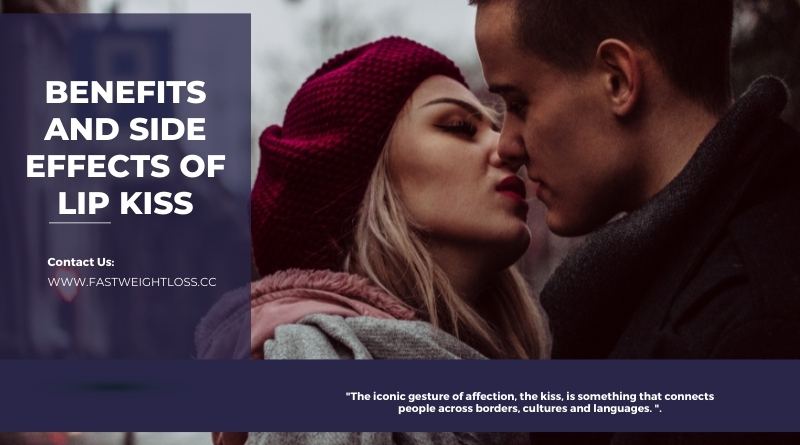Lip kisses are an important part of any relationship. They can be used to express love, gratitude, or when someone needs reassurance. However, when lip kisses are no longer consensual or are used sexually in an unwanted way, they can be a form of sexual assault.
The benefits of lip kisses are that they can show affection and provide comfort in times of vulnerability. They can also enhance the sense of intimacy between two people in order to deepen their relationship.
Everyone has their own way of kissing. Psychologists, scientists and anthropologists have studied kissing and come up with a system for categorizing different types of kisses. There are three main categories: wet, dry and sloppy.
You may have seen the lip-locking action in a romantic comedy or a sappy love story, but kissing is a much more complex and interesting activity than many people realize. In fact, there are at least 18 different types of kisses! Since the beginning of mankind, people have been experimenting with different forms of kisses. The most common form of kissing is to touch two lips together and move them back and forth, but there are many other types that are used today. One example is called a French kiss, where one person sticks their tongue into the others mouth which could be seen as quite intimate.
Definition of Kissing
Kissing can be defined as an act of affection in which one person places their lips on another person’s face, cheek, or neck. Kissing is an expression of love and passion and it can show someone you care. Kissing can also be a way to ignite passions between two people who are sexually attracted to each other. When you kiss someone, you feel all the wonderful sensations of their lips against yours: the warmth and moisture and smoothness and taste.
Different types of kisses
No matter if you are married or single, old or young, there is nothing better than a kiss. A kiss can be used to say hello after being apart for a time, to express gratitude when someone does something nice for you, to show respect and admiration for someone you look up to, and lastly, to show love.
Theories: What kiss is and how people see it
Where does the word come from and who was the first to do it?
The word “kiss” has a variety of meanings. Kissing someone on the cheek or lips, kissing a child goodnight, and even the word “smooch” all have different meanings. But what is the literal meaning of a kiss? How did its popularity change over time? Who was the first person to kiss?
The words that we use to describe kisses vary greatly.
Why? What’s the point of kissing?
I’m not sure anyone can answer the question, “Why?” What’s the point of kissing? If you really think about it, it doesn’t make any sense. Is there a practical reason for it? Why do we do it? What is its purpose? It’s usually just a greeting or goodbye, and in some cases a farewell.
Kissing in fear: What to do when you need for relief?
A kiss can be a romantic gesture of love, a means to stop a crying child, or a way to break up with someone. But what about when you need a kiss for relief? More specifically, when you have social anxiety and need a quick fix of dopamine from deep kissing.
Sometimes people who have social anxiety feel the pressure to hug those who they don’t want to hug because it will make those around them more at ease. For all you know, you might not be kissing for too much longer.
The different responses to a kiss
The purpose of this article is to demonstrate the various reactions to a kiss. There will be different interpretations and emotions of the event, such as anger, darkness, and pure bliss. Kissing can be an exciting way to express one’s love for another person. However, there are times where kissing might not be appropriate. There are 3 types of response: “I kissed her!” “She kissed me!” “Her lips were so soft.
What are kisses?
Most people would think that the word “kiss” means a romantic gesture to someone you love, but it can also mean a touch or contact with someone’s mouth and nose. Kissing is an important part of many cultures and religions. There are two categories: air kisses and lip kisses. Air kisses involve contact without touching lips while lip kisses involve contact with lips.
A kiss is a touch or contact with someone’s mouth and nose.
Why are kisses important?
Ever wonder why people kiss? Kissing is considered to be an act of affection, which is defined as displaying tenderness and concern for others. It may also be interpreted as a signal of love, sympathy, or respect. There were many different theories on the origins of this act of affection. Perhaps the most popular theory was proposed by French neurologist Paul Broca in 1878, who suggested that kissing originated from prehistoric acts of feeding.
How are kisses different across cultures?
Kissing across cultures is somewhat different. In some countries, kissing can be seen as an inappropriate act. In other countries, kissing is seen as a sign of love and affection, only done in front of close friends or family members. Still others may find kissing offensive or rude.
There are many differences between cultures concerning how to kiss, which has made the topic very interesting for me to research. Surprisingly to me, I found that many people have never kissed before at all!
Benefits and side effects of lip kiss
The benefits and side effects of lip kiss are complicated. It has its risks, but it can be fun too. To start, kissing can make you feel more connected with the person you’re kissing. It also transfers some good bacteria from one mouth to the other, which is great for your immune system. On the other hand there are things that could happen if you give or receive a bad lip kiss. You could get an STI or grow an allergic reaction that is difficult to control.
Kisses are not only nice, but they can also be used to express many different emotions. It is therefore evident that kissing is an integral part of the social experience.
















Add Comment